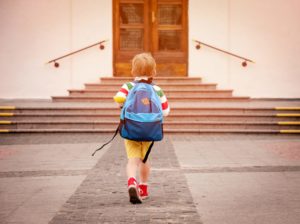A Study Guide To Getting Sleep During Final Exams
Across the country, college students are wrapping up the school year by taking their final exams. Finals week is a time defined by high stress, poor dieting, and terrible sleep habits. While college students generally suffer from chronic sleep deprivation, the additional stress and anxiety associated with exams can lead to students pulling “all-nighters,” or not sleeping at all, to cram for tests.
Unfortunately, those all-nighters can actually hurt your grades. For better exam scores, the answer may be as simple as better sleep. Of course, that’s easier said than done. That’s why we’ve put together this short study guide to better sleep during finals week. No cramming required!
How Much Sleep Do College Students Need?
Adults need at least seven hours of sleep per night to feel rested. Teenagers require a bit more, between eight to ten hours.
Our circadian rhythms, or internal body clock , regulate our natural sleep schedule. During adolescence, we experience a circadian shift , where our bodies naturally tire later.
Unfortunately, this circadian shift during adolescence occurs at a time when school starts even earlier. Starting in high school and continuing into college, students struggle with waking up way earlier than their bodies want them to. Even if students do manage to get a full night’s sleep, this shift in sleep schedule can still lead to negative effects, like poor mood and concentration, and increased feelings of depression .
Vocabulary Word: Circadian Rhythms
Circadian rhythms are the official term for your body’s internal body clock. Your circadian rhythms run on a 24-hour cycle, dictating when you feel tired and alert, and regulating your hormones and biological functions.
Top College Dorm Room Essential

How Much Sleep Do College Students Get?
Key Concepts:
- Over half of college students receive fewer than seven hours of sleep during a typical semester.
- During finals week, the average college student only sleeps 6.36 hours per night.
- Sleep deprivation worsens cognitive performance and mood and increases a student's risk of depression, weight gain, and drowsy driving accidents.
As you might have guessed, the vast majority of college students don’t get the sleep they need. During a typical semester, between 70% to 96% of college students sleep fewer than eight hours on weeknights. Over half of college students get fewer than seven hours of sleep each night, and 47% report daytime sleepiness on a near daily level. Sixty percent of college students meet the clinical criteria for poor sleep, and 27% are at risk for a sleep disorder.
If school and sleep don’t seem to go well together, it’s even worse during final exams. The average college student only sleeps 6.36 hours per night during finals week. Fewer than 10% sleep for eight hours each night. In one study of architecture students, a majority reported pulling at least three all-nighters per month.
Not only do students spend less time sleeping during finals week, but they engage in worse sleep habits, as well, so the sleep they do get is of lower quality. Students are under an increased amount of stress during finals, and are more likely to increase their use of caffeine and other stimulants. They also spend more time exposed to bright light from their computers, smartphones, and other electronics. These devices emit a strong blue light that the brain interprets as sunlight, which keeps you awake by disrupting your circadian rhythms .
College students’ sleep patterns wouldn’t be the end of the world, if only sleep weren’t so essential to overall wellbeing. When you don’t get enough sleep, it’s called sleep deprivation . Sleep deprivation can cause serious problems.
College Students and Sleep Deprivation
Vocabulary Word: Sleep Deprivation
Sleep deprivation describes a temporary or chronic state of not receiving enough sleep.
When we’re sleep-deprived, we experience symptoms like:
- Impaired immune function and increased susceptibility to illness and infection
- Increased stress levels
- Increased cravings and weight gain
- Increased risk of depression
- Decreased athletic performance
- Increased risk of drowsy driving accidents
- Impaired cognitive performance
Poor sleep impacts your memory, creativity, and logical reasoning. In other words, not sleeping enough impairs all the skills you need to perform well on a final exam. When students miss out on sleep, they have a tougher time paying attention, and it’s harder for their brains to commit new information to memory.
Sleep deprivation isn’t only how you feel after an all-nighter. It can also come on gradually, if you chronically cut your sleep short on a regular basis. Missing out on just one hour of sleep per night for a week produces the same cognitive impairments as a single all-nighter. Considering that most students sleep only about six hours during finals, most definitely qualify as sleep-deprived.
Did You Know? All-nighters significantly impair cognitive performance, just as much as being intoxicated. An all-nighter produces the same effects as a 0.05% blood alcohol concentration .
Better Sleep = Better Grades. Seriously!
Key Concepts:
- Students who sleep better enjoy better grades, better recall, better mood, and better health.
- Better sleep is associated with improved academic performance.
- To enjoy the maximum benefits of good sleep, you should sleep well for at least a week leading up to your exam.
Is sleep the secret answer to scoring better on your final exams? It just may be. Students who sleep better enjoy better grades, better recall, better mood, and better health.
Many students opt to cram instead of sleep, thinking the extra time studying will benefit them on their exams. The research says the opposite, however. One study created an incentive program to encourage students to sleep more, rewarding them with extra credit if they slept at least eight hours on average for five nights in a row. Of students who weren’t enrolled in the incentive program, only 9% got at least eight hours of sleep, and only 14% got seven hours. When the students enrolled in the program, those percentages increased to 59% and 86% respectively.
On average, the incentivized students slept over 1.5 hours more per night than the students who weren’t in the program. Best of all, the more well-slept students performed just as well as their sleep-deprived peers. In another variation of the study, the students who slept eight hours or more performed even better than those who did not.
What’s the takeaway from this research? Sacrificing sleep for studying does not actually improve your performance. In fact, spending more time asleep during finals week could actually help you earn better grades.
Test Yourself! Does getting more sleep help or hurt grades?
Answer: It helps. Healthy sleep improves memory and recall and is associated with higher GPAs.
To Cram or to Sleep?
Good sleep can pay off even the night before an exam. Some studies have found that getting a full night’s sleep before taking an exam is correlated with better grades and higher overall GPA.
However, other studies have found that it’s not enough to sleep well the night before your exam. To enjoy the maximum benefits of good sleep, you need to sleep well for at least a week leading up to your exam. In one study, researchers found that the previous night’s sleep had no impact on test scores.
When researchers assessed the students’ sleeping habits leading up to an exam, however, they discovered that those who slept longer and enjoyed better sleep quality in the week and the month beforehand did get better grades. In fact, researchers estimate the better sleep accounted for nearly 25% of the difference in academic performance.
To understand why sleep can positively impact grades, it’s helpful to understand how sleep works. When we sleep, our brain cycles through different stages of sleep several times a night, from light sleep to deep sleep to rapid eye movement (REM) sleep and back again. With each cycle, we spend progressively more time in the deeper REM stages of sleep, and less time in light sleep .
When you cut your sleep time short, you cut your REM sleep short. REM sleep is the stage of sleep in which we do the most dreaming, and our brains process new information and commit it to memory. REM sleep is critical for our cognitive performance. When students miss out on sleep, they primarily miss out on REM sleep, which they need the most when they’re studying for finals.
Test Yourself! During which stage of sleep do our brains process new information and memories?
Answer: REM sleep is associated with brain development and emotional processing
Tips for Sleeping Better During College Finals
It’s possible no one has more on their plate than a college student during finals week. But, do what you can to improve your sleep during this time.
Use Your Naps as a Study Break
Students who nap more tend to have higher GPAs. Napping right after you learn something can help improve your memory of the material. Even a six-minute nap can improve your vocabulary memorization by 11%. When it comes to retaining new information, napping has been proven to be even more effective than cramming.
There is a delicate balance between napping just enough and napping too much, though. Limit your naps to 20 to 30 minutes, and plan for naps to end by late afternoon. Otherwise, you may have trouble falling asleep later that night.
Follow a Regular Sleep Schedule
Go to bed and wake up at the same time every day (including weekends). Irregular sleep schedules have been linked to lower GPAs, while consistent sleep can improve academic performance.
Make Your Sleep Environment as Cool, Dark, and Quiet as Possible
Optimizing your bedroom for sleep can be tricky when you’re sharing a room and you don’t control the dorm’s thermostat. Four in ten students wake up due to a noisy roommate or dorm. If that’s your situation, eye masks and ear plugs are your friends. Or, fall asleep while listening to a white noise playlist on Spotify.
Go for Comfort
It’s easier to sleep more deeply when your body is comfortable. If you can feel the springs on your dorm mattress, get yourself a . These are an affordable way to improve your comfort. may also help relieve anxiety for some.
Say Goodnight to Your Phone
Electronics trick you into staying up past your bedtime because of the blue light they emit. Turn your phone off at least 30 to 60 minutes before bed. Read a book or listen to calming music instead.
Exercise Daily
Daily exercise has consistently shown to improve sleep quality , even if it’s just a brisk walk around campus. Since you’re short on time during finals, make the most of your workout by doing it outside soon after waking up. This will give you an extra energy boost , while helping to realign your circadian rhythms and improve your sleep.
Be Careful With Caffeine and Alcohol
Finals are so exhausting, it’s natural to want to reach for the energy drinks, coffee, and snacks whenever you need a pick-me-up. Unfortunately, these will likely make your sleep worse.
Be thoughtful about your caffeine intake during finals. Limit yourself to 400 mg per day , and stop having any at least eight hours before bedtime. Studies show that coffee has the ability to disrupt sleep even when ingested six hours before bed . Nicotine and alcohol also worsen sleep quality. Instead, indulge in your favorite healthy foods to keep your energy levels up and your mood balanced.
Remember! If you can, prioritize your sleep during finals week. Your grades will thank you for it!
References
16 Sources
-
National Institute of General Medical Sciences. (2022, March 11). Circadian rhythms.
https://www.nigms.nih.gov/education/fact-sheets/Pages/circadian-rhythms.aspx -
Hagenauer, M. H., Perryman, J. I., Lee, T. M., & Carskadon, M. A. (2009). Adolescent changes in the homeostatic and circadian regulation of sleep. Developmental Neuroscience, 31(4), 276–284.
https://pubmed.ncbi.nlm.nih.gov/19546564/ -
Buboltz, W. C., Jr, Brown, F., & Soper, B. (2001). Sleep habits and patterns of college students: A preliminary study. Journal of American College Health, 50(3), 131–135.
https://pubmed.ncbi.nlm.nih.gov/11765249/ -
Hershner S. (2015). Is sleep a luxury that college students cannot afford?. Sleep Health, 1(1), 13–14.
https://pubmed.ncbi.nlm.nih.gov/29073409/ -
Zeek, M. L., Savoie, M. J., Song, M., Kennemur, L. M., Qian, J., Jungnickel, P. W., & Westrick, S. C. (2015). Sleep duration and academic performance among student pharmacists. American Journal of Pharmaceutical Education, 79(5), 63.
https://pubmed.ncbi.nlm.nih.gov/26396272/ -
Schlarb, A. A., Friedrich, A., & Claßen, M. (2017). Sleep problems in university students – An intervention. Neuropsychiatric Disease and Treatment, 13, 1989–2001.
https://pubmed.ncbi.nlm.nih.gov/28794633/ -
King, E., & Scullin, M. K. (2019). The 8-hour challenge: Incentivizing sleep during end-of-term assessments. Journal of Interior Design, 44(2), 85–99.
https://pubmed.ncbi.nlm.nih.gov/31379422/ -
Figueiro, M. G., Wood, B., Plitnick, B., & Rea, M. S. (2011). The impact of light from computer monitors on melatonin levels in college students. Neuro Endocrinology Letters, 32(2), 158–163.
https://pubmed.ncbi.nlm.nih.gov/21552190/ -
National Heart, Lung, and Blood Institute. (n.d.). Sleep deprivation and deficiency., Retrieved May 10, 2021, from
https://www.nhlbi.nih.gov/health-topics/sleep-deprivation-and-deficiency -
Okano, K., Kaczmarzyk, J. R., Dave, N., Gabrieli, J., & Grossman, J. C. (2019). Sleep quality, duration, and consistency are associated with better academic performance in college students. NPJ Science of Learning, 4, 16.
https://pubmed.ncbi.nlm.nih.gov/31583118/ -
National Institute of Neurological Disorders and Stroke. (2019, August 13). Brain basics: Understanding sleep.
https://www.ninds.nih.gov/health-information/public-education/brain-basics/brain-basics-understanding-sleep -
Cousins, J. N., Wong, K. F., Raghunath, B. L., Look, C., & Chee, M. (2019). The long-term memory benefits of a daytime nap compared with cramming. Sleep, 42(1), zsy207.
https://pubmed.ncbi.nlm.nih.gov/30371902/ -
Dolezal, B. A., Neufeld, E. V., Boland, D. M., Martin, J. L., & Cooper, C. B. (2017). Interrelationship between sleep and exercise: A systematic review. Advances in Preventive Medicine, 2017, 1364387.
https://pubmed.ncbi.nlm.nih.gov/28458924/ -
Lee, H., Kim, S., & Kim, D. (2014). Effects of exercise with or without light exposure on sleep quality and hormone responses. Journal of Exercise Nutrition & Biochemistry, 18(3), 293–299.
https://pubmed.ncbi.nlm.nih.gov/25566466/ -
MedlinePlus: National Library of Medicine (US). (2015, April 2). Caffeine. MedlinePlus., Retrieved May 10, 2021, from
https://medlineplus.gov/caffeine.html -
Drake, C., Roehrs, T., Shambroom, J., & Roth, T. (2013). Caffeine effects on sleep taken 0, 3, or 6 hours before going to bed. Journal of Clinical Sleep Medicine, 9(11), 1195–1200.
https://pubmed.ncbi.nlm.nih.gov/24235903/





